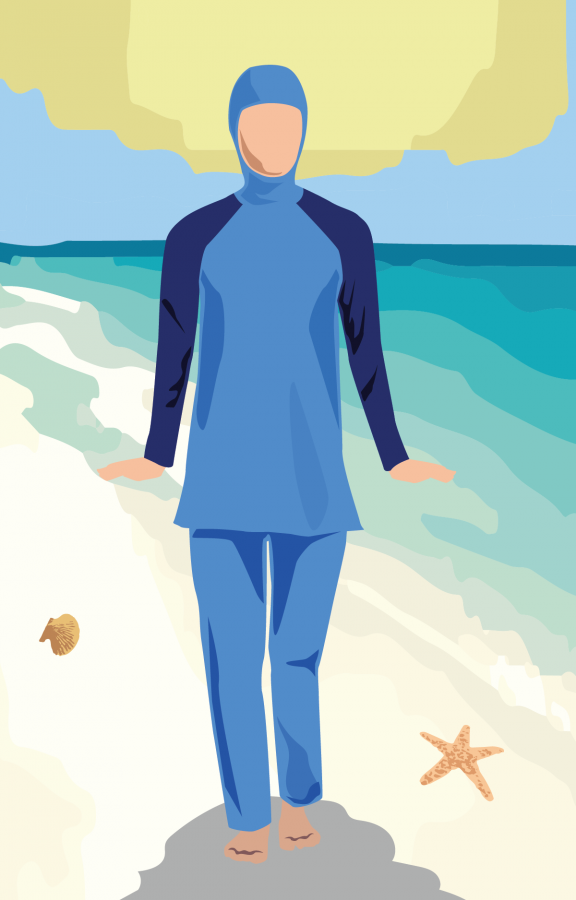Bashing ban on burkinis
Aug 30, 2016
Splashing around the local pool (or lounging on the side) is a staple for most kids’ sweltering summers. However, for many Muslim women, this simple pleasure is being taken from them because French towns are enforcing a new ban on burkinis.
A burkini, for those who don’t know, is a type of swimwear that covers the arms, legs, and hair. It is prime pool wear for Muslim women who want to maintain the modesty of a burqa while in the water. This innocent choice was not appropriate for many French mayors, including Prime Minister of France, Manuel Valls, who called it “the enslavement of women.”
I’m not sure what women feel more enslaved by, their burkinis or some local government officials restricting what they can and can’t wear. These strict policies are surprising for France, of all countries, because it’s known for its topless beaches. Despite this, France has had a ban on burqas since 2010. It’s truly a shame that in a nation where women have obtained the freedom to wear whatever they want, they are punished for wanting to cover up.
This is particularly ridiculous, because merely a century ago, swimwear was much more modest for both men and women. Most women would be completely covered in long gowns and fabric. If anything, people would call today’s bikinis more inappropriate than the burkinis.
Unfortunately, due to this Islamophobic legislation in France, these harmless garments have become victims of a misconception — that the wearing of a burkini counts as pushing the Islamic agenda. Due to France’s open immigration policy, the nation has a high population of Muslim immigrants, leading to heightened religious tensions.
Get The Daily Illini in your inbox!
However, the burkini ban faced international outrage, prompting France’s highest administrative court to lift the ban, ruling that the mayors did not have the authority to restrict burkinis. Despite this however, a majority of French mayors are refusing to adhere to the court’s ruling. Valls, a member of the Socialist Party, defended the ban, saying that the burkini was “the affirmation of political Islam in the public space.”
The burkini ban was not completely unexpected due to the last legislation on burqa wearing in France. Although both seem blatantly discriminatory against Muslim women, the burqa ban was upheld by the European Court of Human Rights (ECHR) in 2014, as “it was not expressly based on the religious connotation of the clothing in question but solely on the fact that it concealed the face.” But no matter the technicalities of the law, it is still obvious that the basic human rights of Muslim women in France are being violated.
In today’s society, women are condemned if they choose to show skin or if they cover up. Not only does this prohibit the basic freedom of modesty for millions of women, it also basically prohibits them from practicing their religion. Being forced to obey western principles and give up something so simple as being able to cover up is a violation of basic human rights. This ridiculous ban on burkinis should not be allowed to continue just because it makes a few paranoid French politicians uncomfortable.
Shankari is a sophomore in LAS.






